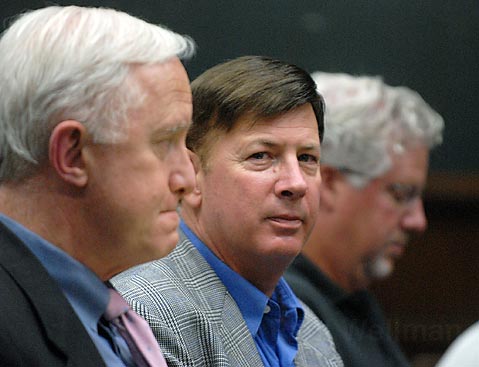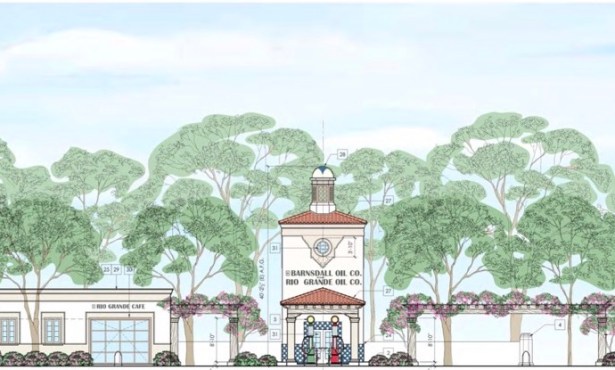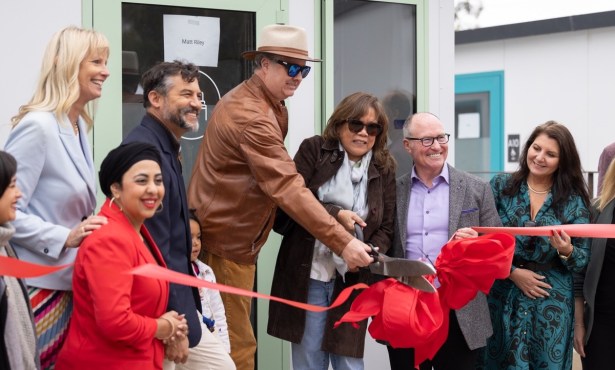Voters Will Decide Veronica Meadows
Judge Says Project Can't Go Forward Without Election

Developer Mark Lee’s efforts to build 25 new homes on undeveloped land along Las Positas Road has seen nine long years of political bumps and procedural potholes. This Tuesday, that road got a whole lot bumpier and the potholes deeper. Superior Court Judge Thomas Anderle ruled that even though Lee had won the requisite approvals from the Santa Barbara City Council and Planning Commission, his proposed development – dubbed Veronica Meadows – can’t be built until a majority of the city’s voters vote for it in an election.
Anderle stated that the city charter requires such a vote before city officials can “sell, dispose, or encumber” any publicly owned parkland. Lee has proposed building a 141-foot-long bridge across Las Positas Creek to provide vehicular access to his 25-unit housing development. A small portion of the the area this bridge would cross, however, is undeveloped, city-owned parkland. Lee’s attorneys described the size of the parkland in question as less than “five-one hundredth of an acre” that constituted a “bundle of sticks.” They claimed that City Hall would retain ownership of the land “before, after, and during” bridge construction. And finally, they argued the bridge access was compatible with the open space parkland and, hence, was legally exempt from the city charter provisions requiring that an election be held. They contended the bridge would facilitate the development of bike paths and sidewalks that would allow cyclists and pedestrians to walk from Elings Park, through Veronica Meadows, and through to Hendry’s Beach – a.k.a. Arroyo Burro Park. Additionally, they pointed out that Lee committed to spending $1 million to rehabilitate city-owned portions of Arroyo Burro Creek.
But Anderle declined to budge. He ruled that the bridge and parkland were necessary to build an entrance and exit to Lee’s development, and “not compatible with or accessory to the use of the property as a parkland.” He objected that the “city persists in mischaracterizing the purpose of the bridge and road as being to provide access to the parkland and to provide a safer and more effective link between the park property, adjacent property, and the beach.”
Lee proposed the bridge to avoid the wrath of neighbors living on Alan Road, which offered the only other access to his property. But the bridge was declared an unmitigatable environmental impact in the project’s environmental report. Consequently, critics and many creek advocates have campaigned to stop Veronica Meadows. Lee then proposed going through Alan Road, but the angry neighborhood gave the City Council cold feet, and Lee was eventually granted permission – but only if he built the bridge. Citizens Planning Association (CPA) and the Urban Creeks Council sued, arguing that the council could not permit the bridge crossing so long as Alan Road remained a feasible alternative. They won. Lee then submitted a supplemental environmental review declaring that the Alan Road entrance was not feasible either and the City Council re-approved his project. This prompted a second CPA lawsuit, during which the idea of an election first arose. And it caught many long time participants by surprise. Mayor Marty Blum – now in her 13th year in office and a consistent vote in favor of Veronica Meadows – said she never heard about the election requirement. Planning Commissioner Harwood White – a long time foe of the project – likewise said he was taken by complete surprise by the election argument. “I wish we all knew about this a lot sooner,” he said. “It could have saved Lee a lot of time and expense and we could have come to a much cleaner process and decision.”
Lee was not in court Tuesday morning, but his attorney, Steve Amerikaner, said Lee would likely appeal Anderle’s ruling.
While Lee bore the brunt of most of Anderle’s decision, City Hall was taken to task as well for requiring CPA to file an appeal – at a cost of $360 – of the Planning Commission’s 3-2 approval of the project even though it was the City Council that made the final decision. In Anderle’s tentative decision, he termed the appeal requirement “an improper attempt to extort unwarranted appellate fees.” City Attorney Steve Wiley objected to this language, and Anderle delete the offending verbiage. The judge stuck with his basic decision nonetheless.
The developer and City Hall did win one crucial argument, however. Anderle ruled that City Hall did not abuse its discretion when the council voted that the Alan Road entrance was not feasible. Attorneys for CPA and the Urban Creeks Council contended that the entrance was certainly feasible and only by torturing the facts and evidence could one conclude otherwise. Anderle, acknowledging that he gave great deference to the decision makers, ruled that there was considerable evidence presented – though not necessarily the best – upon which the council relied when making its finding.


